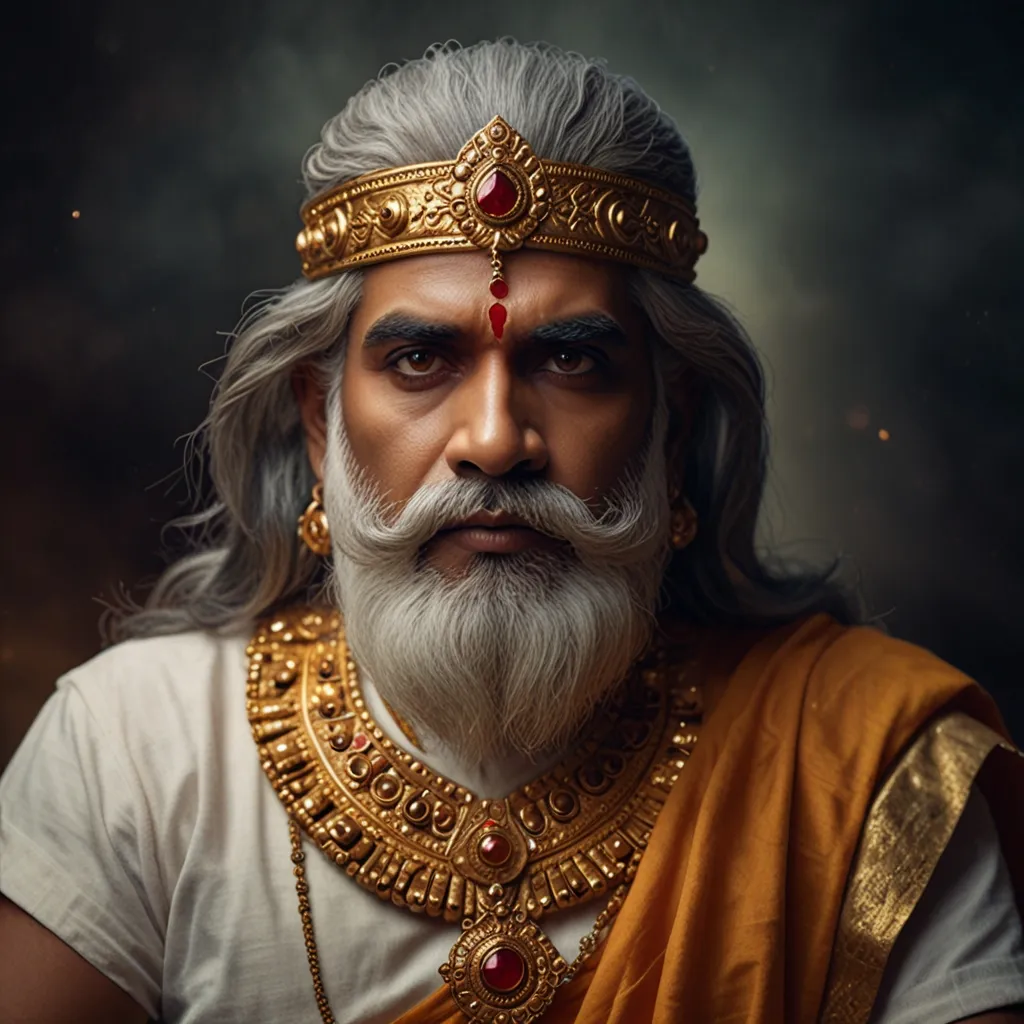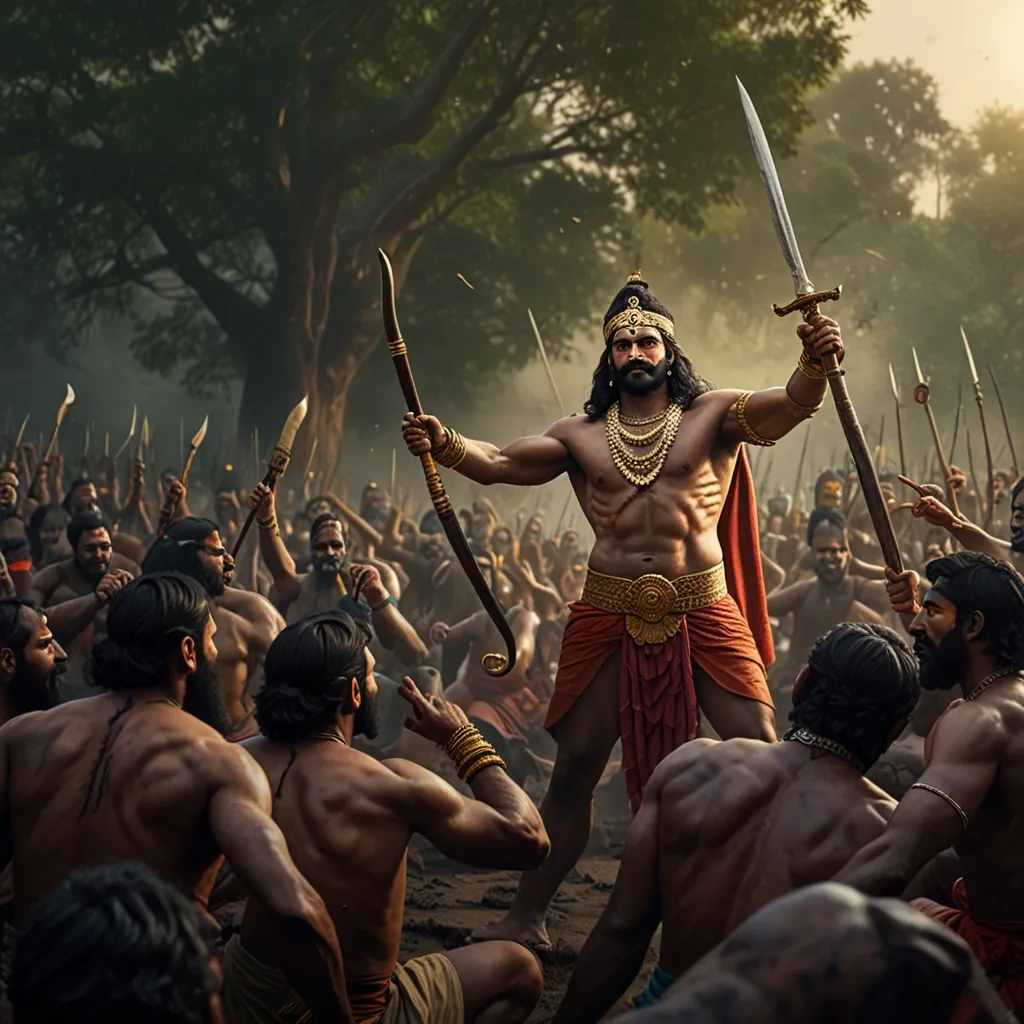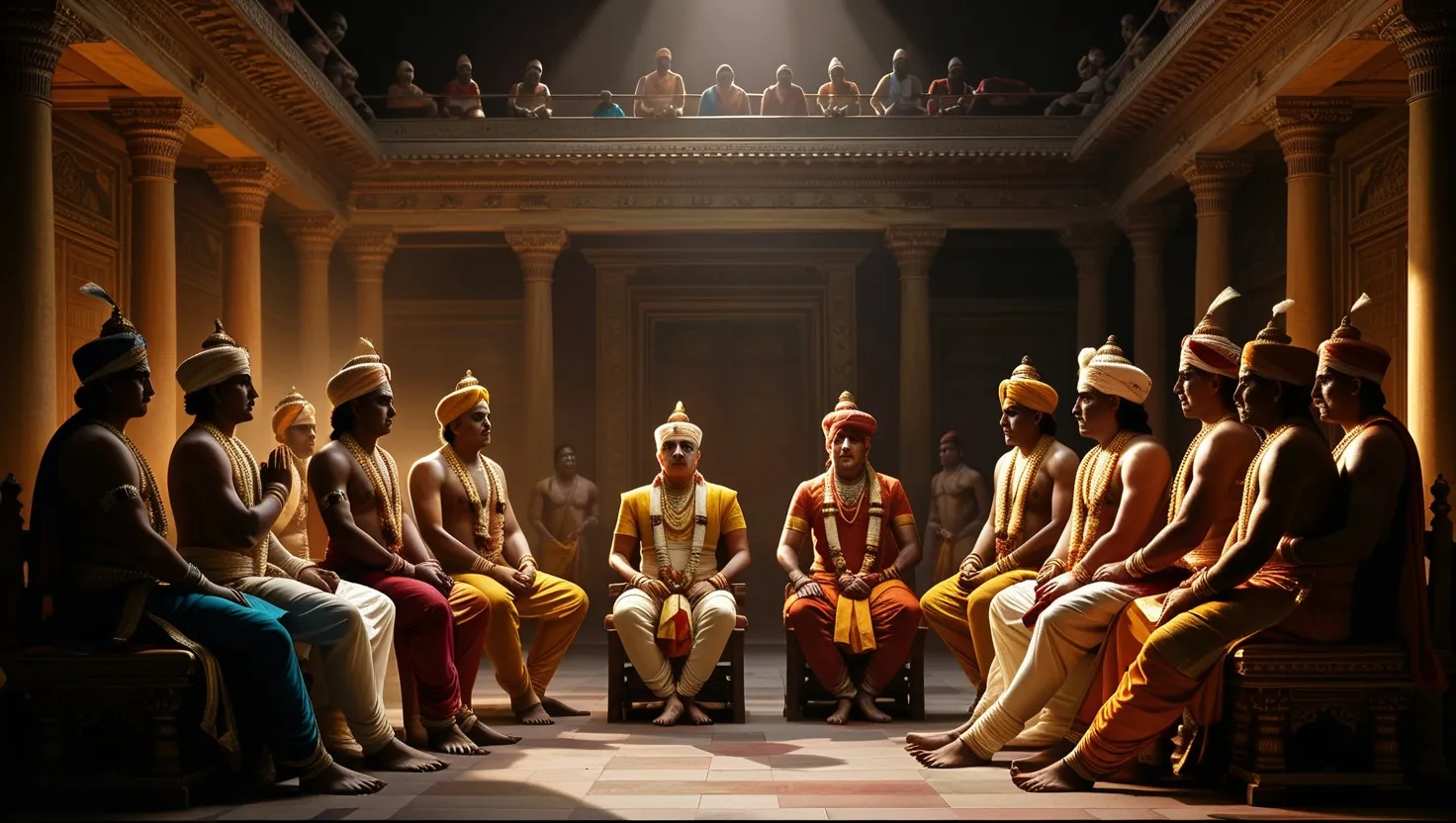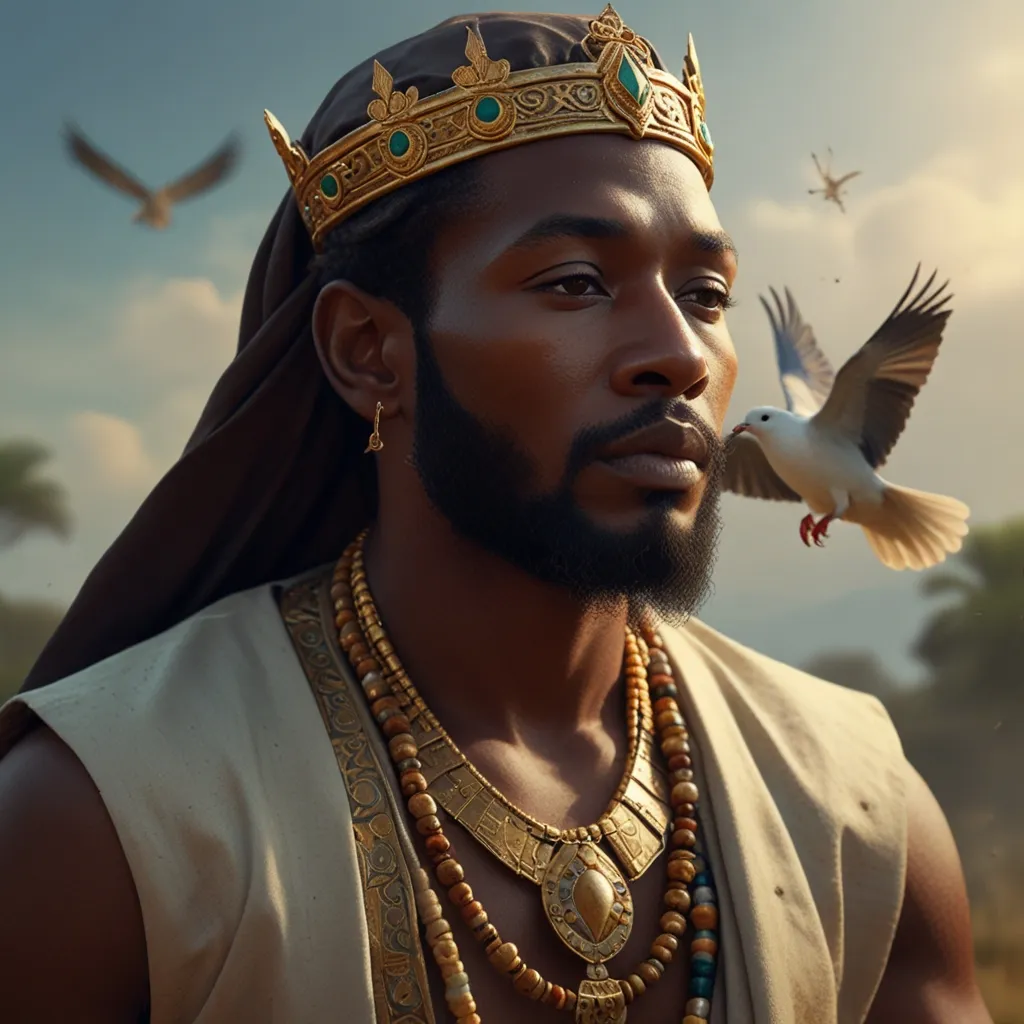Vidura stands out as one of the most compelling figures in the Mahabharata due to his wisdom, intelligence, and unshakable commitment to dharma. His life offers a dazzling array of lessons in ethical leadership, showing how unwavering virtue can guide complicated political and familial landscapes.
Vidura’s origin story is unique and intriguing. Born to a maid through the practice of the levirate system—an ancient custom where a brother marries his deceased brother’s wife to produce an heir—Vidura was destined for greatness from the get-go. Despite his modest background, he was gifted with remarkable intelligence and insight, shaping him into a revered figure within the Kuru kingdom.
As the prime minister, Vidura wore many hats. Not only was he a trusted political advisor, but he also served as the moral backbone for the entire royal family. Both the Pandavas and the Kauravas sought his counsel, although the latter often disregarded his sage advice. Vidura’s expertise was not limited to politics; he was also deeply learned in religious scriptures and the core principles of dharma.
One of Vidura’s most lasting contributions is the “Vidura Niti,” a collection of ethical and political advice he gave to King Dhritarashtra. In this compilation, Vidura underscores the importance of compassion, fairness, and the overall welfare of the people. He advised leaders to act virtuously, protect those in distress, and strive for the prosperity of their subjects. He also warned against the pitfalls of greed and stressed the importance of maintaining good relations with neighboring kingdoms.
The relationship between Vidura and Dhritarashtra was particularly complicated. Despite being half-brothers, Vidura often found himself at odds with Dhritarashtra, especially when the king was swayed by his son Duryodhana. Vidura constantly warned Dhritarashtra about the dangers of Duryodhana’s ambitions, urging him to restore the kingdom to the rightful heirs, the Pandavas. However, Dhritarashtra’s blind affection for his son made him impervious to Vidura’s wise counsel.
In the face of such challenges, Vidura never wavered in his commitment to dharma. He maintained an unwavering belief that even the most hardened hearts could change. His compassion spanned to all, including the Kauravas, whom he urged to correct their wrongs. Vidura’s impartiality and wisdom were reflected in his equal treatment of both the Pandavas and the Kauravas.
Vidura’s interactions with Krishna are another fascinating aspect of his life. Krishna frequently sought out Vidura’s advice, recognizing his deep understanding of divine law and his role as a peacekeeper. Krishna’s visits to Vidura’s home were gestures of deep respect, acknowledging Vidura’s devotion and wisdom.
Vidura is also intimately connected with Vyasa, the author of the Mahabharata. Vyasa, Vidura’s father, profoundly influenced his son’s life. Vidura’s teachings and ethical stances were a direct reflection of the values instilled by Vyasa. Their bond illustrates the powerful impact of familial knowledge and how wisdom is often passed down from one generation to the next.
As the Kurukshetra war concluded, Vidura’s life took another selfless turn. He accompanied Dhritarashtra and Gandhari into the forest to perform austerities, ensuring that their last days were peaceful and rooted in redemption. This act of compassion encapsulates Vidura’s character—ever committed to his principles and the well-being of others.
Beyond the Mahabharata, Vidura’s legacy lives on. He is celebrated as a model of truth, duty, and impartial judgment. His teachings continue to serve as a guiding light for leaders and individuals alike, offering timeless lessons in virtue and ethical governance. In today’s world, which is often fraught with conflict and moral ambiguity, Vidura’s story remains a beacon of hope, guiding us toward a path of righteousness and compassion.
Vidura’s narrative is a powerful reminder of the enduring strength of wisdom, compassion, and ethical leadership. His life and teachings offer a treasure trove of insights that are as relevant today as they were in ancient times. As we reflect on his journey, we remember the importance of staying true to our principles even when faced with adversity. Vidura’s story is a testament to the profound impact one person can have on the world, reminding us that a steadfast commitment to virtue can illuminate even the darkest paths.






